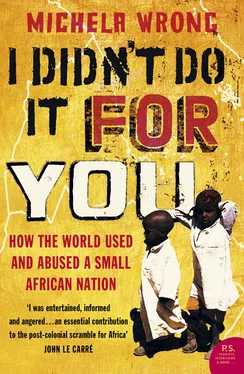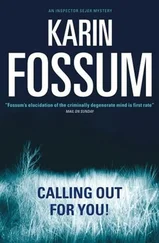1 ...8 9 10 12 13 14 ...25 He had started out as one of the fiercest critics of Italyâs African adventure, arguing that a European nation which had itself only just thrown off the yoke of foreign rule was, in trying to subjugate a foreign people, guilty of the worst kind of hypocrisy. Why invest in Massawaâs infrastructure, when Italyâs poor south itself stood in crying need of development? After the Dogali massacre, Martini stuck his neck out by refusing to hail the slaughtered men as heroes and demanding the immediate recall of Italian troops, on the grounds that remaining in Eritrea was âneither the policy of a daring nation nor a wise peopleâ. So, by asking Martini and several other well-known anti-colonial campaigners to be part of the seven-man team assigned to investigate the goings-on in Massawa, Rome was signalling its honourable intentions to a suspicious public. With Martini as vice-chairman of the royal inquiry, how could there possibly be a cover-up?
Setting off from Naples, the team spent eight weeks touring the colony. Travelling by mule, they interviewed Eritrean chiefs and Italian officials, took notes on climatic conditions and analysed local trade. For the inquiryâs remit went far beyond investigating the alleged human rights abuses. The Massawa scandal had highlighted the need for an authoritative appraisal of Eritreaâs economic and strategic potential. It was time Rome decided exactly what it wanted of its Red Sea colony.
It was a potential turning point in Eritrean history. Given Martiniâs reputation for forthrightness and the doubts he had voiced about the colonyâs raison dâêtre , his left-wing colleagues in parliament and Italian voters had no reason to expect anything other than a stringently impartial account. The level of trust placed on his shoulders makes what transpired that much harder to forgive.
For when the team published its conclusions in November, editorsâ mouths dropped open. In their first, 9,000-word report, the inquiry members meekly accept the excuses made by the military commanders they had questioned in Rome and Massawa. Damning journalistic accounts are brushed to one side, as are Livraghiâs confessions, the product, the report hints, of an unhinged mind. With the exception of less than a dozen executions ordered during a crisis by Baldissera, who had helpfully explained that âit was necessary to strike terror into those barbarians to make them submitâ, the team finds no evidence of night-time assassinations. It sympathizes with the general for the pressures he came under, finding that the colonyâs existence âreally was under threatâ. As for the âsupposed massacresâ of entire Eritrean military units, these âdid not take placeâ. There might have been a couple of incidents in which rebels being escorted to the border â a mere 16, rather than 800 â had been shot. But, adopting an approach favoured in many a rape trial, the team prefers to blame the victims, whose failure to cooperate with their captors brought their fate upon themselves. Another convenient scapegoat was the Eritrean police force, which apparently had a problem grasping the concept of military discipline.
The very wording of the inquiryâs extraordinary conclusion, with its wealth of unconscious racism, tells us everything we need to know about the teamâs philosophical point of departure. âIf, in some isolated case, an abuse was committed, it can only be attributed to the savage temperament of the indigenous policemen necessarily entrusted with carrying out orders, and to the victims themselves,â it reads. âNeither the [military] command nor any colonial officials can be held responsible.â In the light of these findings, it was hardly surprising that a Massawa court absolved both Cagnassi and Livraghi, while sentencing two Eritrean police chiefs to long prison sentences. Newspapers which had called for an Italian withdrawal from Eritrea were left flailing, the parliamentary debate on the matter â despite some sarcastic speeches by anti-colonial deputies â sputtered to an anti-climax, without a vote. The system had protected its own and, as several Italian officials revealed in memoirs published long after events, the mass killings and frenzied executions of suspected troublemakers swiftly resumed in Eritrea. 6
The second report the team drafted represents, at least as far as the former anti-colonials on the team were concerned, a further betrayal of principle. Rejecting the sceptical accounts of previous visitors, Martini and his colleagues hail Eritrea as a âfertile and virgin land ⦠stretching out its arms to Italian farmersâ. The colony, they say, is ideally placed to serve as an eventual outlet for Italyâs émigrés. To that end, Rome should concentrate on consolidating Eritreaâs borders, improving relations with local chiefs, replacing the military command with a civilian administration and attracting the peasant landowners who will form the backbone of a vibrant Italian community. Not an inch of acquired territory should be surrendered.
By simultaneously burying a scandal that threatened to rock the government and bestowing its blessing on Italyâs African daydreams, the inquiry had effectively granted a faltering colonial project a new lease of life. On this, the first of Martiniâs two key encounters with Eritrea, the supposed freethinker had played a central role in a shameless whitewash which not only ensured Massawaâs atrocities quietly faded from view, but guaranteed the colony survived to be fought over another day.
Why did Martini do it? Why did he risk his reputation by putting his name to what a historian of the day described as âan incredible, medieval document, which should have been confiscated as an apologia for the crime ⦠A sickening defence of assassinationâ? 7
Any journalist is familiar with the sensation of being ânobbledâ by the target of an investigation. Starting out on a story in a state of hostile cynicism, his views falter as one interviewee after another put their cases with impassioned sincerity. The trust placed in the journalist is so unwavering, the hospitality so warm and, on closer examination, the people he was originally gunning for seem so reasonable. Years later, looking back on the glowing write-up that resulted, he winces at how easily he allowed himself to be manipulated, shrugs his shoulders and blames it on a heavy lunch. But it is hard to argue that Martiniâs keen intelligence was momentarily befuddled by the justifications presented by the colonial officials he met. In later life, he never showed any sign of regretting his role as co-author of the vital report. What puzzled contemporaries described as Martiniâs âconversionâ to the colonial cause was to be a permanent change of heart.
Did the quest for self-advancement play a role? Here, the picture becomes more murky. Martini was undoubtedly vain and hugely ambitious. It seems unlikely that he could already have had his eye on the post of Eritreaâs governorship, which would only be created 10 years into the future. But once granted a place on a high-profile royal inquiry, investigating a topic known to be particularly close to King Umbertoâs heart, Martini must have been aware that a bland finding would mean political rewards somewhere down the line.
Martiniâs own explanation for his U-turn â however nigglingly unsatisfying â probably lies implicit in the pages of NellâAffrica Italiana , a highly personalized account of the Eritrea trip published after his return. Written in the self-consciously literary language of the day, but blessed with the authorâs characteristic sharp eye for detail, it became a runaway bestseller, appearing in 10 editions and remaining in print for 40 years. Reaching a far wider audience than a dry government report ever could, NellâAffrica Italiana , it could be argued, played a more crucial role in shaping public opinion towards Eritrea than anything else Martini wrote.
Читать дальше












